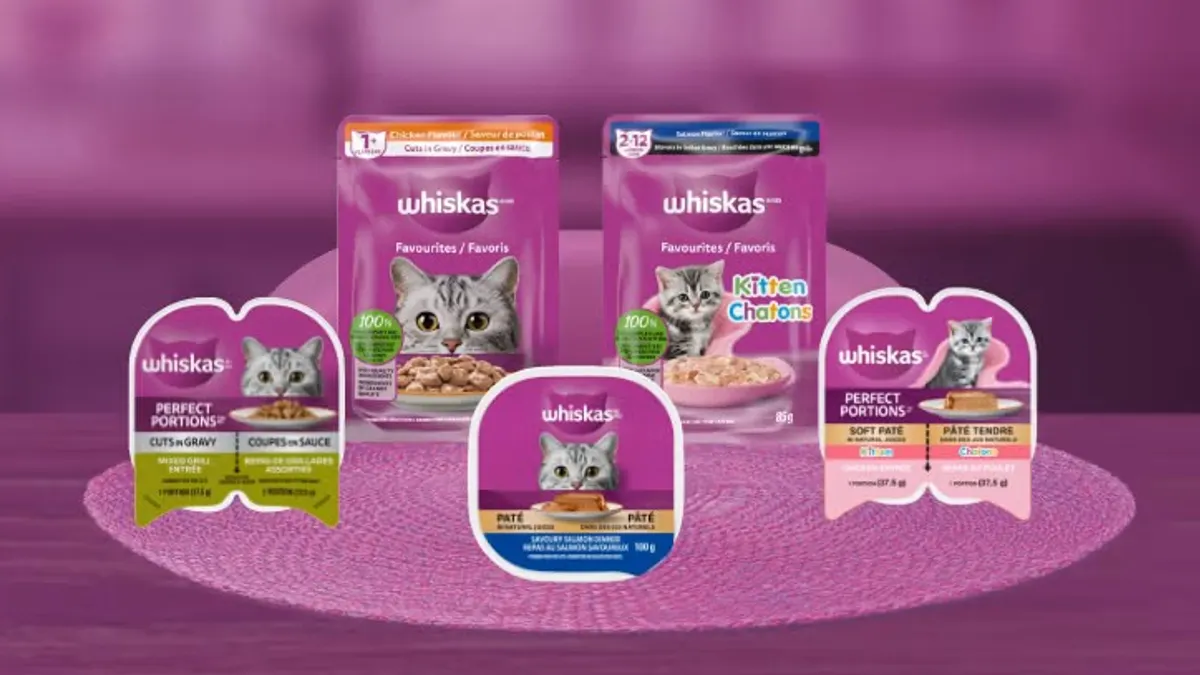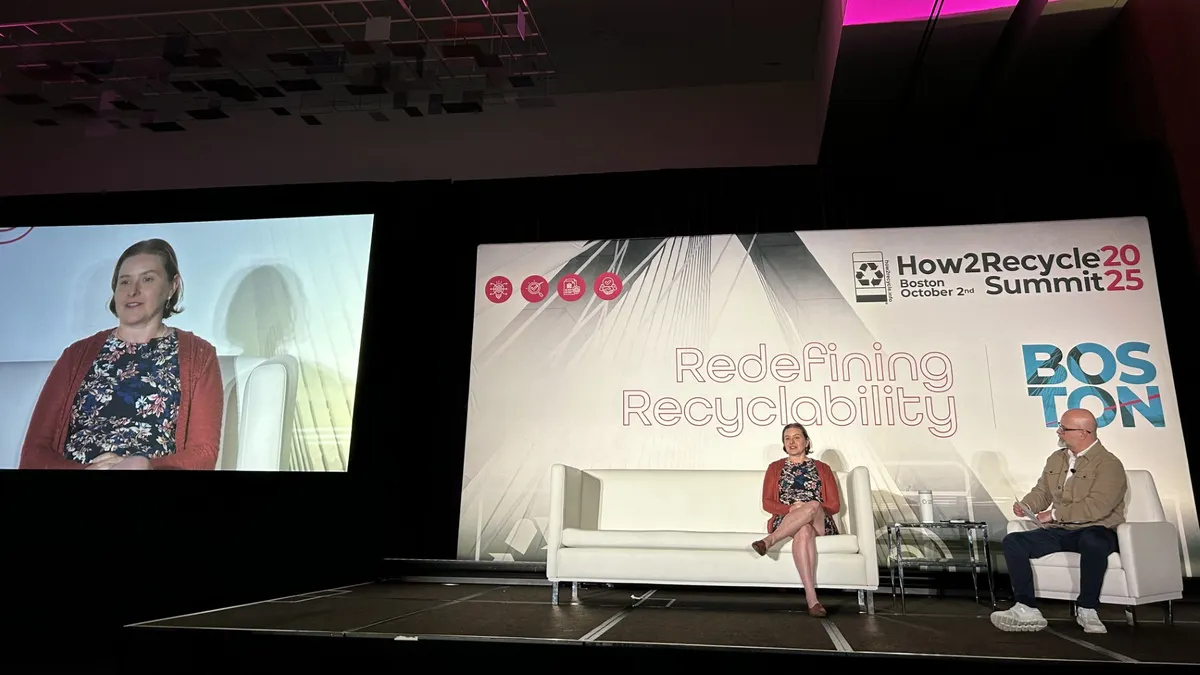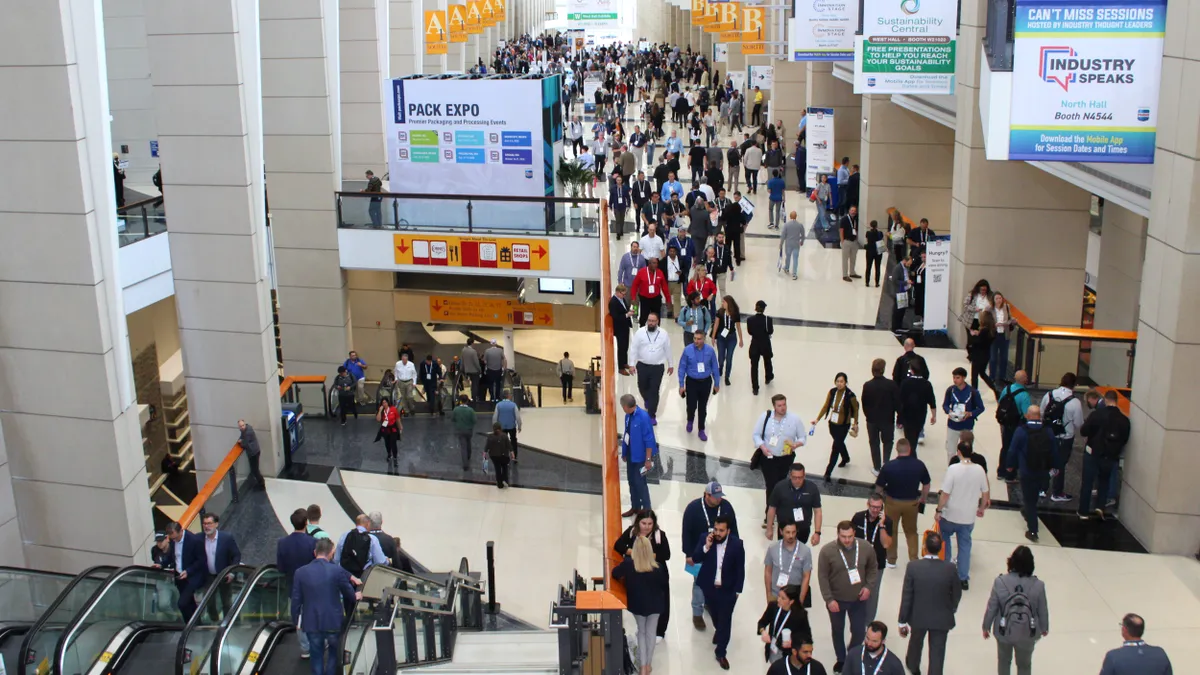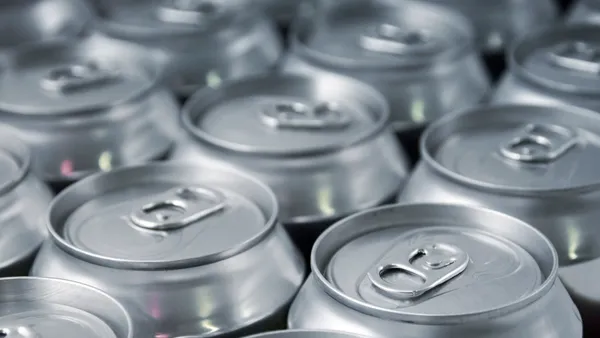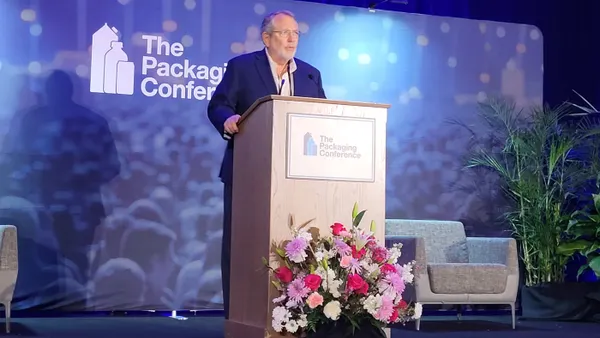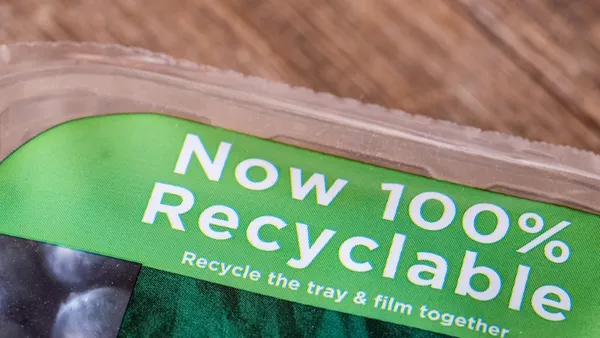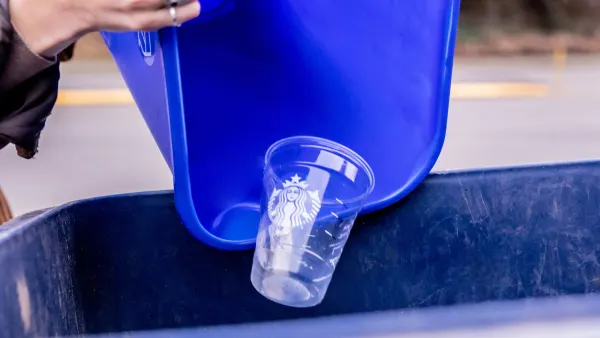Mars might be best known for its candy, but pet food packaging is one area where the company touts progress in advancing circularity, according to the 2024 sustainability report it released last week.
Mars’ report acknowledges the company still has “a long way to go” but that it has “made substantial progress across key areas” such as reducing plastic, increasing recyclable packaging and expanding refill and reuse initiatives. This follows Mars’ announcement last year that it was unlikely to meet certain 2025 packaging sustainability goals that it signed on for in 2018 as part of the Ellen MacArthur Foundation’s global commitment.
In the EMF commitment, Mars aimed for 100% of its packaging to be reusable, recyclable or compostable (RRC) by 2025 and for 30% to have postconsumer recycled content on the same time frame. Upon releasing its 2023 sustainability report last year, the company shifted its focus from packaging that is reusable, recyclable or compostable in practice to being “designed” for these end-of-life options.
Two years ago, it noted in its 2022 report that 45% of its packaging portfolio was designed for recycling. Meanwhile, just 20% of the portfolio was actually considered RRC.
Mars says it incorporated more than 14,000 metric tons of plastic PCR into its packaging portfolio in 2024, including in jars for Skittles, Starburst and M&M’s candies. And the company launched 60% PCR pouches for pet food brand Schmackos in Australia.
Mars also eliminated 350 tons of plastic by optimizing packaging formats, including by transitioning from pots to pouches for Whiskas cat food. And it expanded the use of paper-based compostable M&M’s bags in China.
“Challenges clearly remain – and progress will not always happen in a straight line – but with clear intent and continuous investment in partnerships and innovation, the impact outlined in this report shows that it is possible for a business to become more sustainable and continue to grow,” CEO Poul Weihrauch said in the 2024 report.
Some of the holdbacks Mars previously cited for not meeting goals included lacking infrastructure for collecting, sorting and recycling packaging, especially plastics. The new report noted that those challenges remain, yet the company still increased the percentage of packaging, by weight, that is reusable, recyclable or compostable. It described initiatives in 2024 to expand bulk M&M dispensing and transform more than 840,000 plastic pet food packages into public installations, such as benches or playground features, in Thailand. The report also highlighted an effort to scale a reusable shipping container program for veterinary clinics that avoided 80 tons of waste.
The company’s chief sustainability officer said in a news release that Mars is committed to delivering immediate progress in addition to meeting distant targets, but it needs help from other players across the supply chain.
“[W]e need systemic change across our supply chains, with governments, industry and farmers all playing a role,” CSO Alastair Child said. “We know we can’t do this alone and so we want to bring our partners and peers along, as only large-scale change will deliver on our collective goals.”


